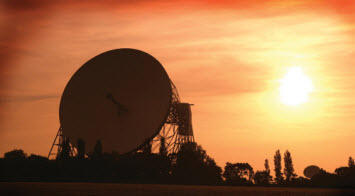Features
Science and Technology
This a selection of our features that fall under the subject heading 'Science and Technology'. This is to give you a flavour of the rich and diverse collections that you can find on the Archives Hub.
- Astronomy: the papers of leading astronomers, physicists, and mathematicians, and the records of instrument makers and observatories.
- Bicycle Clips: bicycles, cycling clubs, and road safety.
- Brunel University London's special collections: From Brunel to the Channel Tunnel and from the South Asian Diaspora Arts to the Operational Research Society.
- A Cabinet of Curiosities: including body-snatching for anatomists, parapsychology, and UFOs.
- Cold Comfort: the search for Arctic explorer Rear Admiral Sir John Franklin (1786-1847); with photographs provided by the Scott Polar Research Institute, University of Cambridge.
- Curiouser and Curiouser: intriguing inventions and curious research.
- Dig for Victory!: we recruit the Women's Land Army to promote archive awareness.
- Edge of Darkness: highlighting the papers of scientists, engineers, military personnel, politicians, and others involved in the development of nuclear power or nuclear weapons; and also the papers of scientists, politicians and campaigners, as well as the records of organisations, who have sought to limit or end the use of nuclear weapons, have been opposed to nuclear power, or have investigated alternative sources of energy.
- The Frederick Lanchester archive at Coventry University: The work of car manufacturer, engineer, scientist and inventor Frederick Lanchester (1868-1946) is being celebrated by the Lanchester Interactive Archive project at Coventry University. He was one of the UK’s leading automobile engineers of the late 19th and early 20th centuries and creator in 1895 of the first all-British four-wheel petrol driven motor car.
- The Herschel archive at the Royal Astronomical Society: The Royal Astronomical Society is the custodian of a significant collection of the astronomy-related papers of William, Caroline and John Herschel.
- Dorothy Hodgkin, Nobel Prize-winning chemist and crystallographer
- Forensics: a partial print of the history of forensic science, shining a light on the descriptions for the papers of physicians, pharmacists, chemists and toxicologists involved in criminal investigations, and records relating to forgery and violent crimes.
- Hurry Up Please It's Time: the papers of astronomers, mathematicians, physicists, and inventors who have developed ways to measure time, as well as papers of craftsworkers, historians, and others with an interest in time-keeping technologies.
- Maps: maps and map-makers; with images from the Elizabeth and Arthur Raistrick Map Collection at the University of Bradford.
- The Nobel Prizes: awarded each year for achievements in physics, chemistry, and medicine.
- pay&power: engineering companies in the West Midlands.
- Planes, pilots and politics: National Aerospace Library’s collections fly onto Archives Hub : The human race has always wanted to fly, and the National Aerospace Library’s collection shows how we have pursued those dreams to conquer and then perfect flight; from aeroplanes to hovercraft, air travel to satellites, and missiles to man carrying kites.
- Railway history: 200 years of the steam engine: papers of inventors and engineers, records of locomotive manufacturers, railway companies and unions, and papers of writers who had a special enthusiasm for railways; illustrated with photographs from Glasgow University Archive Services, University of Dundee Archive Services, and Glasgow Museum of Transport.
- Science Year: Science Year is a UK-wide educational initiative to promote science, technology, and engineering.
- Scottish National Antarctic Expedition: established what is now the oldest continuous meteorological station operating in the Antarctic; with photographs provided by the Scott Polar Research Institute, University of Cambridge.
- Seeing the light: an amateur meteorologist established the connection between carbon dioxide and climate change 70 years ago; we also look at British scientists who were researching solar energy more than fifty years ago.
- Solly Zuckerman: the papers of scientist Solly Zuckerman (1904-1993) provide a primary source for the study of British science and technology policy; air operations in Europe and the Middle East in World War II; wound ballistics research; and the evolution of operational research.
- Typewriters and Office Machines: typewriters and their impact on office workers in collections at The Women's Library and other collections around the UK. Throughout the 20th century female typists were a key part of office life, resulting in an uneasy relationship between the workforce and the machine.
- University of Salford Archives & Special Collections: how they added images to their archive descriptions.
- Volcanoes and earthquakes: papers of geologists and geophysicists, travellers and photographers who have witnessed the effects of volcanoes and earthquakes, with 19th century geological illustrations, 19th century photos of Pompeii, and photos of the 1963 Skopje earthquake; Britain recently experienced its strongest earthquake in almost a quarter of a century.
- Waterways: Britain's inland waterways; with images of the Manchester Ship Canal and the Bridgewater Canal.
- What's in a place-name?: linguists, geographers, and historians who have researched place-names in the British Isles.
- William Speirs Bruce Archive in the National Museums Scotland Library: August 2017 marked the 150th birthday of naturalist and Antarctic explorer, William Speirs Bruce. Part of the Bruce archive is held in the library collections of National Museums Scotland.
 Jodrell Bank
Jodrell Bank

